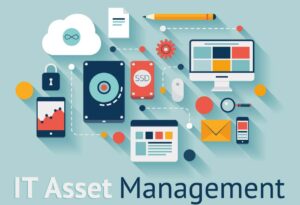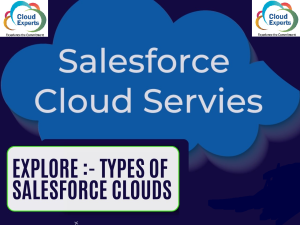Could you provide a description of an erection pump
Could you provide a description of an erection pump? Learn more about men’s health and the use of erection pumps by visiting this informative website:

In today’s business world, there are many options for enterprises looking to switch immigration providers. They consider factors like service, technology, costs, and employee experience. The terms RFI, RFP, and RFQ are commonly used in the procurement process, but they have distinct meanings. Understanding these differences helps companies choose the right type of request when selecting a new provider.
Enterprise software investments can boost productivity and profitability, but selecting the right software requires a rigorous approach. A Request For Proposal (RFP) helps businesses define their requirements and communicate them to software vendors.
This blog provides a clear explanation of RFI (Request For Information), RFQ (Request For Quotation), and RFP (Request For Proposal). It covers their purposes, styles, and benefits, simplifying these complex processes.
Understanding the differences between similar terms is important for effective processes and procedures. RFI, RFP, and RFQ may seem similar, but they are distinct processes.
RFI (Request For Information) is used when we have an idea of what we want, but we need more information from the supplier. It helps us get general information and understand the supplier better. It’s the first step to narrow down the options.
RFP (Request for Proposal) is used when we have a specific problem and need solutions. It’s a formal process with strict rules for content, timeline, and supplier response. We invite suppliers to propose solutions and evaluate their bids.
RFQ (Request for Quote) is used when we know what we want, but we need price and payment information from the supplier. It’s for specific solutions and helps us compare prices and choose the best option.
In summary, using RFI, RFP, and RFQ can help companies save money, simplify procurement, and make better decisions.
Purchasing managers often use emails and different documents to collect information, which can be challenging to manage.
Aggregating responses and making informed decisions can be difficult, leading to longer procurement cycles.
Some companies consider purchasing RFP software to streamline the process, while others may skip the RFX process altogether.
The choice between RFI, RFP, and RFQ depends on what the company needs from suppliers.
Understanding the differences between RFI and RFP is important to make the right request.
Companies can use one, two, or all three methods based on pricing requirements, familiarity with suppliers, project scope, and deadlines.
One Software That Offers All In One Solution For RFx & E-Auctions India’s Most Decorated and 100% Secure Online e-Auction Platform That Makes ProVen The Best Supplier Relationship Management (SRM) Solution.
Move away from spreadsheets and manually compare quotations and information from vendors. Cloud Expert’s eRFX solution – ProVen lets you manage all your RFIs, RFQs, RFPs, RFTs, and Auctions, in one system.
Deploy reverse auction strategies to maximize savings and innovate procurement operations.
One Software That Offers All In One Solution For RFx & E-Auctions India’s Most Decorated and 100% Secure Online e-Auction Platform That Makes ProVen The Best Supplier Relationship Management (SRM) Solution.
Move away from spreadsheets and manually compare quotations and information from vendors. Cloud Expert’s eRFX solution – ProVen lets you manage all your RFIs, RFQs, RFPs, RFTs, and Auctions, in one system.
Enhance your most normal obtaining process, eRFX, and contract talks in the quickest way possible. Leverage ProVen&apos’s intelligent APIs to concentrate all obtaining information onto a solitary stage and improve on the most confounded processes with quicker direction.
Open the window to make your spending analysis more astute with ProVen. Open fundamental examples by solidifying a lot of spending Data and assist your Procurement Team to eliminate blind expenditures, screen conduct, and gain further bits of knowledge.
You can link your processes and technology using ProVen’s smart APIs. This will make different systems work well together. You don’t need to collect information from various tools anymore. You can make your procurement system better.
Say Goodbye to misplaced and mismanaged paper contracts with ProVen’s Contract Management Software. You can say goodbye to risks and lost savings too. It helps you to handle all types of contracts easily, securely, and without using paper and ink. It simplifies the creation, execution, and management of your contracts.
Save up to 20% of your procurement budget by reducing unplanned or uncontrolled spending. ProVen can help you manage your tail spend and find more savings by giving you a clear view of your spending.
See where you spend money in your supply chain and find ways to save. Procol’s smart dashboards show you information about how much products cost, details about suppliers, and trends in prices. You can use this information to cut down your expenditure.
Connect with an expert who can share more about our solutions and answer any questions you have.
Could you provide a description of an erection pump? Learn more about men’s health and the use of erection pumps by visiting this informative website:
There are five primary reasons for the development of heart failure. the healthy man blog to learn more about the main causes of impotence and
Does erectile dysfunction hinder the ability to masturbate? Certainly! Here’s a phrase that describes the main point of the article: “Discover the truth about erectile

IT Asset Management IT Asset Management – What Is It? IT Asset Management (ITAM) is a way to keep track of all your IT stuff,

Top 3 Ways to Optimize Procurement A study by Riskmethods found that 79% of companies experienced supply chain disruptions, resulting in a loss of 4%

Why is 3-Way Matching is Important in Purchasing? 3-way matching is an important process in purchasing to ensure accuracy, completeness, and compliance of invoices with

What is Indirect Procurement? 5 ThingsYou Need To Know What is Indirect Procurement? I talked about it with Procurement Expert Richard Beaumont on The Supply

RFI Vs RFP Vs RFQ In today’s business world, there are many options for enterprises looking to switch immigration providers. They consider factors like service,

5 Reasons Why eAuctions Drive Is Better Savings eAuctions are online discussions between a buyer and a group of sellers. Procurement specialists can use eAuctions

What is Category Management in Procurement? Category management is a way of organizing and managing similar products or services together. It helps organizations make their

17 common challenges in procurement management and their solutions Procurement can be complicated and challenging to manage due to various factors such as regulations and

The Ultimate Guide to the Top 16 Procurement KPIs. Nowadays, businesses want procurement teams to do more than just save money. They want them to

ProVen Revolutionary Procurement Software Revolutionary Procurement Software : Revolutionary procurement software is here! It’s advanced, flexible, easy to use, affordable, highly secure, and can be

ProVen The Next Generation Procurement & Vendor Management Solution – SRM Procurement Challenges: The current purchase process is both inefficient and lacks transparency. Floating RFQs

4 Benefits You Need To Keep In Mind While Choosing Right Salesforce Partner Salesforce is a strong stage that can assist organizations with smoothing out

6 Reasons To Hire Salesforce Developer For Your Business Is it safe to say that you are here since you need to find the reason

5 Major Benefits of Hiring a Salesforce Consultant What is the Market Share of Salesforce? Salesforce’s worldwide portion of the overall industry and income keeps

5 Ways to Effectively Manage Ideas on Salesforce Experience Cloud The thought creation process is an excursion with many exciting bends in the road. Thoughts

5 Salesforce Integrations That Can Transform Your Daily Business Operations If we discuss Salesforce, there are regions in which it adds to the business. From

Salesforce Marketing Cloud – 8 Ways to Maximize Your Marketing Potential In the present quick-moving advanced world, organizations should stay aware of the most recent

Sales Cloud Related 7 Key Features You Must Know What is Salesforce Sales Cloud? With the steadily expanding request, there is a consistent requirement for

4 Major Points How Salesforce Ensure Data Security and Privacy? Introduction These days information security and privacy is the main pressing issue for everybody and

6 Major Insights How Salesforce Implementation Can Improve Your Sales Process? Introduction Throughout the long term, Salesforce has been thought of as one of the

10 Leading CRM Software That Will Rule In 2023 Introduction Customer relationship management software is the core of any developing business these days as all

The 15 Types Of Clouds In Salesforce & Their Features Introduction Salesforce, as a comprehensive Customer Relationship Management (CRM) platform, offers a wide range of

5 Factors – Why Salesforce Is The Best And Desired CRM Solution? Introduction Salesforce has earned a reputation as one of the leading Customer Relationship

Major 6 Reasons Why Salesforce Is In So Much Demand These Days Introduction We have witnessed that Salesforce is in demand and got popularity in

6 reasons why Salesforce used AI in its CRM offerings. Introduction Salesforce, the market leader in Customer Relationship Management (CRM), has harnessed the power of Artificial Intelligence

Major 6 Future Outlook For Salesforce In The CRM Market? Introduction Salesforce has established itself as the dominant force in the Customer Relationship Management (CRM)

Top 6 Benefits Customer Will Get From The Salesforce AppExchange Introduction Salesforce’s AppExchange is an extensive marketplace of applications and integrations that provides customers with

Major 6 Industries are benefited the most from Salesforce’s CRM Solutions Introduction Salesforce’s Customer Relationship Management (CRM) solutions have proven to be valuable across a

6 Reasons Set Salesforce Apart From Other CRMs Introduction In a crowded market of Customer Relationship Management (CRM) providers, Salesforce has managed to carve out

Top 5 Reasons for Salesforce’s Market Leadership Market Share Of Salesforce Introduction Salesforce has emerged as the market leader in Customer Relationship Management (CRM), revolutionizing

Top 5 Reasons and The Journey Of Salesforce For Becoming The No 1 CRM Introduction In the highly competitive world of Customer Relationship Management (CRM),

How Is The Future On Salesforce? Introduction : In today’s fast-paced digital landscape, businesses are constantly striving to stay ahead of the competition and maximize

19 Major Benefits Of Using Salesforce CRM? Introduction: In today’s highly competitive business landscape, maintaining strong customer relationships is crucial for success. That’s where Salesforce,

What Exactly Does Salesforce Do? Introduction : Salesforce is a leading Customer Relationship Management (CRM) platform that offers a wide range of cloud-based services to
Epic Match: MI vs. SRH – T20 Titans’ War in the IPL 2023 In the T20 Indian Premier League (IPL), the Mumbai Indians (MI) and

6 Ways CRM Helps You Grow Your Business Customer Relationship Management (CRM) software can play a crucial role in helping businesses grow and thrive. Here are